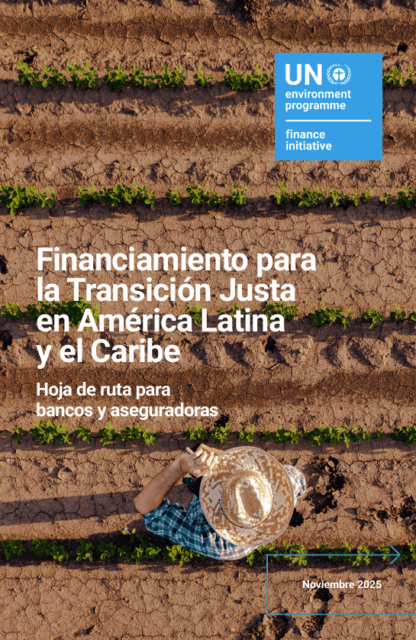As industries adapt to meet environmental goals, it is essential to address the social and economic impacts of this transition on workers, communities, and vulnerable populations. A just transition ensures that the shift to a sustainable, low-carbon, and climate-resilient economy is fair, inclusive, and leaves no one behind. It also presents unique opportunities to advance the sustainability agenda while striving for an equitable society.
The finance sector, including banks, insurers, and investors, has a powerful role to play in realizing this fair, inclusive future. Supporting a just transition is more than a moral imperative; it enables financial institutions to mitigate material risks, capture emerging commercial opportunities, and contribute to a more resilient economy.
Key pillars of a Just Transition
- Decent work: Aligning environmental action with employment goals, social protection, and labour rights, by creating quality jobs that are safe, fair and offer opportunities for growth.
- Inclusive decision-making: Empowering workers, communities and marginalized groups by ensuring they have a voice in shaping transition policies and initiatives.
- Economic access: Leveraging the environmental transition to increase access to essential goods and services.
- Economic resilience: Ensuring that the environmental transition strengthens, rather than undermines, economic resilience and inclusivity.
Resources

Just Transition Finance: Pathways for Banking and Insurance – co-authored with ILO, and developed in consultation with banks, insurers and key stakeholders, this guidance provides a framework for integrating just transition principles into financial institutions’ governance, financing, risk management and stakeholder engagement.

Financiamiento para la transición justa en América Latina y el Caribe: Hoja de ruta para bancos y aseguradoras – co-desarrollado con la International Labour Organization y elaborado en consulta con bancos, aseguradoras y actores clave, este informe proporciona un marco para integrar los principios de la transición justa en la gobernanza, el financiamiento, la gestión de riesgos y la participación de las partes interesadas de las instituciones financieras en América Latina y el Caribe.


